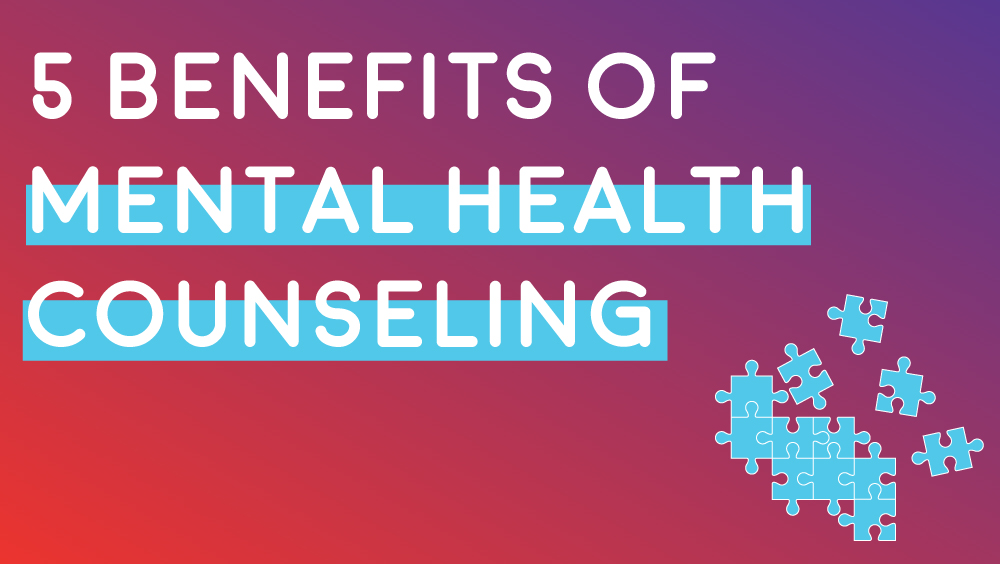The Basic Principles Of Mental Health Counseling
The Basic Principles Of Mental Health Counseling
Blog Article
The 45-Second Trick For Mental Health Counseling
Table of ContentsOur Mental Health Counseling StatementsMental Health Counseling for DummiesGetting The Mental Health Counseling To WorkMental Health Counseling Fundamentals ExplainedGetting The Mental Health Counseling To Work
Through treatment, you can obtain understanding into your very own patterns of habits and communication, which can bring about even more fulfilling and pleasing connections with good friends, family members, and enchanting companions. What we think, we show up. If you're eaten with unfavorable emotions and negative thoughts that are interfering with your life, treatment can help.Like our ideas, sometimes our behaviors come to be detrimental. They can keep us from living a positive and healthy way of life. Maybe you struggle with addiction, or you tend to self-sabotage, or there are other negative means you act. Mental Health Counseling. Therapy can aid you change those behaviors that are having an adverse impact on your world and connections.

Getting therapy to resolve specific aspects of your life can help you be more productive in various other areas, consisting of job.

The smart Trick of Mental Health Counseling That Nobody is Discussing
There are also extra benefits of therapy than simply the ones we have actually gone over., or construct connections (enchanting or those with household or good friends) in a healthy method.
For the function of the here and now research, regarded benefits and barriers to mental health help-seeking are being explored. Previous research located that regarded obstacles have a substantial effect on university student' wellness behavior choices (Von Ah, Ebert, Ngamvitroj, Park & Kang, 2003). Viewed benefits and barriers to help-seeking were specifically selected due to their influence on decision-making and inevitably activity (Glanz, Rimer, & Su, 2005).
The present research study seeks to examine whether or not stigma offers as a barrier to therapy among college trainees. Among these were: (1) liking to deal with mental wellness issues themselves, (2) not having adequate time to take part in therapy, (3) inquiries regarding whether mental health and wellness therapy is effective in remediating issues, (4) a belief that stress and anxiety is regular or the issue will obtain far better without therapy, (5) absence of cash, and (6) fret regarding what others would certainly believe if they found out concerning treatment involvement.
Team in campus psychological health centers might be perceived as unfriendly, and long wait times for services might be "repulsive" for pupils. Elements promoting extra favorable mindsets are typically at the contrary pole of those variables recognized as barriers.
4 Easy Facts About Mental Health Counseling Described
One in 3 (34.6%) reported living on university and one in 4 (23.3%) reported dealing with moms and dads. Almost fifty percent of students were associated with university organizations and 1 in 10 reported remaining in a fraternity or sorority. Greater than one-third of trainees (38.1%) reported that they had a member of the family or friend with a diagnosed psychological health disorder.

The 20-Second Trick For Mental Health Counseling
Univariate F-tests determined certain subscale products that considerably varied. Women were less likely than men to view individuals who go to counseling as emotionally weak, individuals that most likely to therapy as crazy, to really feel that people with psychological health and wellness issues ought to deal with problems on their Continued own, that individuals that go to counseling as unable to solve issues, that individuals who go to therapy are lazy, and to feel that people who go to counseling are various from typical people in a negative means.
In a similar way, study results revealed that ladies were considerably much less most likely than males to hold stigma-related mindsets. This is regular with previous research which additionally discovered that males hold higher levels of viewed preconception than females (Chandra & Minkovitz, 2006). Based upon research searchings for, it appears that men may be much less likely than females to seek therapy due to low regarded barriers in addition to high stigma-related mindsets.
Mental Health Counseling Can Be Fun For Everyone
Additionally, university health and wellness professionals may offer curricula targeting men with information on the benefits of psychological health and wellness treatment and the importance of looking for help when required. All strategies need to be examined with future research to identify the result on university student, particularly males. Unlike basic population research studies which reveal that females are most likely to seek mental health solutions compared to guys (Haunstein et al., 2006; Mackenzie, Gekoski, & visit their website Knox, 2006), the here and now research study located no substantial differences in the number of perceived obstacles to help-seeking habits based on sex.
Researchers guess that this is mainly because of traditional social norms and gender duties that defined males based on strength and absence of psychological expression (Addis & Mahalik, 2003; Ang, Lim, Tan, & Yau, 2004; Mojtabai, 2007). Generally, there have been combined outcomes among the university trainee populace pertaining to sex differences (Rosenthal & Wilson, 2008). This finding was unexpected and might highlight that those that had received counseling had a far better concept of wait times and other "access" obstacles that may make it challenging to begin therapy. Probably, participants that have gotten counseling view much more barriers than individuals that have not internet obtained therapy given that seeking therapy solutions once more could include worry of self-disclosing individual details to a brand-new therapist.
Report this page